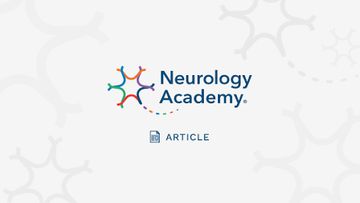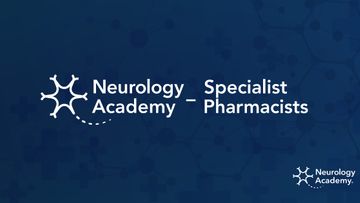Neuropharmacy: new specialism, new MasterClass
NewsJoela Mathews
Highly specialist pharmacist – neurosciences lead, Barts Health NHS Trust
Following the tried and tested practical education model established 14 years ago within the Parkinson’s Academy, each module was led by a member of the faculty alongside consultant neurologists, specialist nurses, and patients.
Topics included diagnosis and backgrounds to the different conditions covered which ‘really solidified my learning’. Varied treatment options, future treatment targets and non-oral therapies were also discussed with relevance as to how services can support these, making the learning transferable: ‘Good to hear what other Centre’s have put in place to overcome difficulties’.
The MasterClass also covered specific challenge-areas such as women and epilepsy – ‘useful to learn about implications for use of other AEDs in pregnancy other than Valproate, as well as advice for breastfeeding’ or ‘tricky cases’ in Parkinson’s. The Neurology Academy has allowed us the opportunity to be trained in these areas so that we can offer our skills to our own base sites in turn.
The delegate group were able to discuss the topics fully, and the unique training offered at Neurology Academy meant that their interactive teaching style was present throughout.
All set up ready for our module 2 of #neuropharmacy https://t.co/puKGPclidV pic.twitter.com/nb42XNPsuj
— Neurology Academy (@TheNeuroAcademy) October 4, 2019
Attendees described the teaching as:
‘Interactive and fun’, ‘very relevant’, and ‘well presented’ with almost every session described by multiple delegates as ‘interactive’ and words like ‘enjoyable’, ‘inspirational’ and ‘brilliant’ running alongside ‘thought-provoking’, ‘informative’ and ‘interesting’.
The focus on practical tips as well as on extending the role of the neuropharmacist within neurology teams was a running theme throughout the training.
Due to the general pharmaceutical council requirement for registrants to have a peer discussion as part of revalidation, this was offered as part of the MasterClass, enabling delegates to have useful discussions in small groups about their own individual needs and requirements. One delegate shared that this session was:
'Extremely useful not only to fulfil my GPhC revalidation requirements, but to share lots of ideas and experiences in a small group of peers that generally helped me understand areas of my service so I could review and improve.’
Another noted that it was:
‘A Great opportunity for those of us who aren’t in a team back at our Centres’.
This is definitely an opportunity we hope to repeat at future events as it proved invaluable for delegates and faculty alike.
It is an exciting time both within neurology and for neuropharmacy particularly and this is reflected in the MasterClass content. I personally, as a neuropharmacist, hope that we can be at the centre of some of the coming clinical advances.
There is already limited places left for the next Neuropharmacy MasterClasses in 2020. In addition and in response to delegate feedback on how we can further support them, the Academy hopes to run webinars and additional sessions on a range of topics including Alzheimer’s, neuromuscular disorders, spinal muscular atrophy (SMA), medicinal cannabis use and others.
The MasterClasses for specialist pharmacists come at exactly the right time as we emerge into having a neuropharmacist in each Trust with a neurology department. It is the Neurology Academy who has supported us as a profession and a speciality, and have facilitated what was a dream – the training and MasterClasses – to become a reality.
Related articles

Positive steps towards an MND drug therapy

The Neuropharmacy Academy 2021
Developing neuropharmacists, supporting collaborative care
Knowledgeable pharmacists can initiate or support new treatment pathways, play an important role in patient education, medicine adherence, efficacy and safety, and provide advice to other healthcare professionals involved in the person's care. This Academy recognises the value of this essential role, and seeks to enhance pharmacist's clinical skills and build their confidence in managing a range of neurological conditions.

